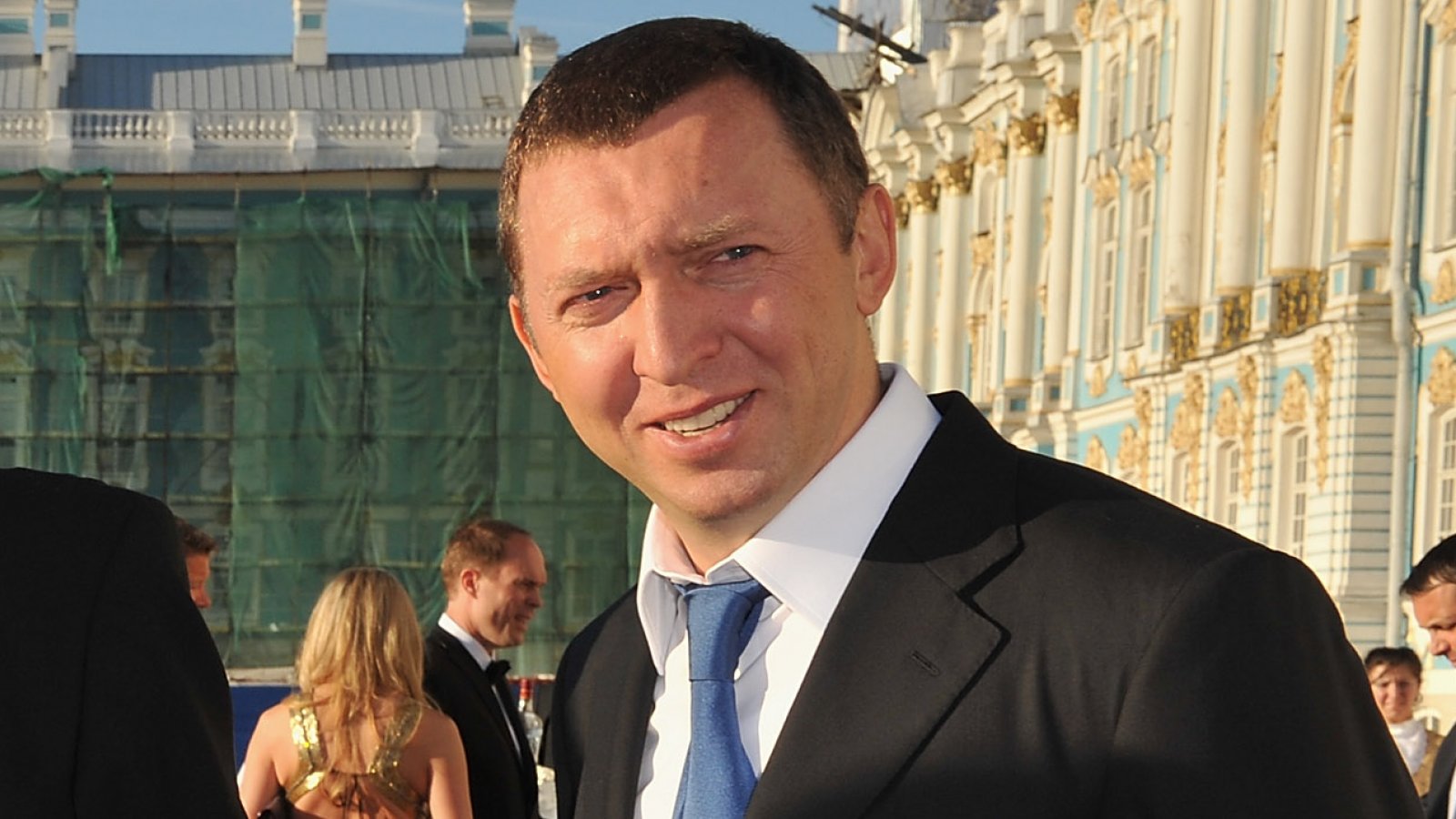
The Trump administration's agreement to lift sanctions on Oleg Deripaska's companies in exchange for reduced ownership and relinquished control seems to be nothing more than a big gift to the oligarch connected both to Vladimir Putin and Paul Manafort.
[A] binding confidential document signed by both sides suggests that the agreement the administration negotiated with the companies controlled by the oligarch ... may have been less punitive than advertised.
(...)
The department laid out the broad contours of the agreement in a letter to Congress, which was released publicly. But the confidential document, which was not released publicly but was reviewed by The New York Times, describes the deal in considerably greater detail, including proprietary information about the corporate restructuring, much of it not previously reported.
It shows that the sanctions relief deal will allow Mr. Deripaska to wipe out potentially hundreds of millions of dollars in debt by transferring some of his shares to VTB, a Russian government-owned bank under limited United States sanctions that had lent him large sums of money.
The confidential document, titled “Terms of Removal,” also shows that the agreement would leave allies of Mr. Deripaska and the Kremlin with significant stakes in his companies ...
(...)
In response to questions about the details outlined in the confidential document, the Treasury Department issued a statement broadly defending the deal, citing provisions that keep Mr. Deripaska and his allies from exerting voting control of some of their shares.
(...)
Yet Mr. Deripaska’s associates have privately expressed satisfaction with the deal. And representatives for EN+ suggested to at least one prospective outside buyer who expressed interest in Mr. Deripaska’s shares that the company would only consider selling to an independent investor as a fall back option if Treasury did not approve the restructuring agreement.
(...)
The publicly released letter sent to Congress said the under the agreement to lift the corporate sanctions, Mr. Deripaska would reduce his ownership stake in EN+ from approximately 70 percent to 44.95 percent. That would include a “restructuring transaction” with a Swiss mining company with which he has worked closely, Glencore, and the transfer of one block of his EN+ stock to VTB Bank and another to a charitable foundation.
(...)
The document identifies the foundation as Volnoe Delo, which was founded and funded by Mr. Deripaska. It supports programs ranging from stray dog rescue to archaeological excavations to book fairs. Under the deal, it will receive nearly 21 million shares of EN+, amounting to 3.22 percent of the company.
The confidential document reveals that Glencore, which is among Rusal’s biggest customers for aluminum, will receive 67.4 million shares of EN+, good for 10.55 percent of the company.
And VTB, which reportedly already owned nearly 10 percent of EN+, will receive nearly 92 million additional shares, bringing its total stake in the company to about 24 percent.
In return for the additional shares going to VTB, which were worth nearly $800 million at the close of trading Friday on the Moscow stock exchange, Mr. Deripaska would be released from debts he owes the bank, the document shows. Mr. Deripaska had secured the loans with stock in one of his companies before the sanctions were announced. The stock prices of Rusal and EN+ plummeted after the sanctions were announced last year, but rose on the news of the deal to lift them — in effect allowing Mr. Deripaska to pay off more of the loans than he would have been able to do absent a deal with the administration.
Notably, VTB would be able to collect dividends from its EN+ shares, according to the confidential document, despite the bank being under limited United States sanctions.
Another Russian oligarch who faces sanctions by the United States and has attracted the interest of Mr. Mueller’s investigators, Viktor Vekselberg, also has a stake in Mr. Deripaska’s empire through a company called SUAL Partners Limited. Another investor in SUAL Partners is Len Blavatnik, a Ukrainian-born billionaire who has British and American citizenship. He donated $1 million through another company he controls to the committee that funded Mr. Trump’s inaugural festivities, which Mr. Vekselberg attended and to which Mr. Blavatnik was invited.
According to the confidential document, under the restructuring agreement approved by the Treasury Department, SUAL would own 22.5 percent of Rusal, while EN+ would own 56.88 percent of Rusal.
The document specifies the precise ownership stakes in EN+ of other people and entities with personal relationships to Mr. Deripaska. That includes shares owned by his ex-wife, Polina Yumasheva, a British-educated daughter of the chief of staff to Boris N. Yeltsin, a former president of Russia. She owns 5.19 percent of EN+, while her father, Valentin Yumashev, owns 1.57 percent, and a firm called Orandy Capital Limited, which reportedly has links to the family, owns another 1.78 percent, according to the document.
Taken together, Mr. Deripaska, his foundation, his ex-wife, her father and Orandy Capital would own nearly 57 percent of EN+ under the deal.
(...)
Critics of the deal pointed out that, after Treasury announced it, the share prices of Rusal and EN+ rose sharply, providing a boost to the portfolios of Mr. Deripaska, his family and VTB.
Russian Oligarch and Allies Could Benefit From Sanctions Deal, Document Shows (NYT)